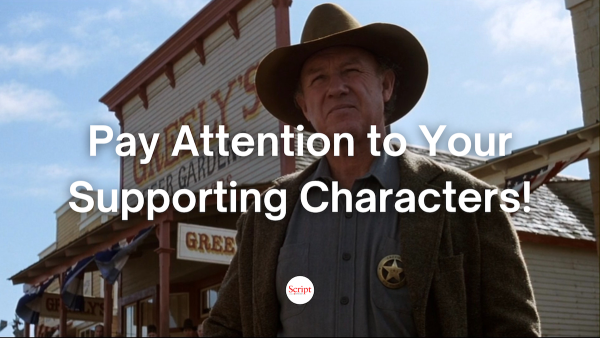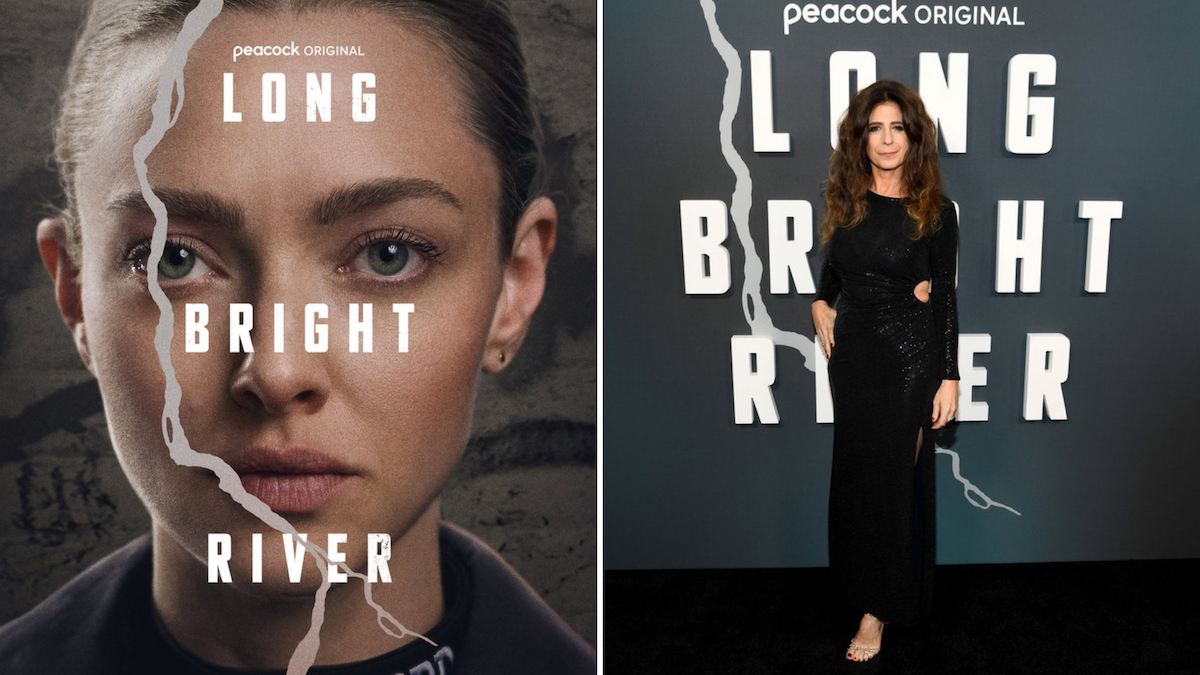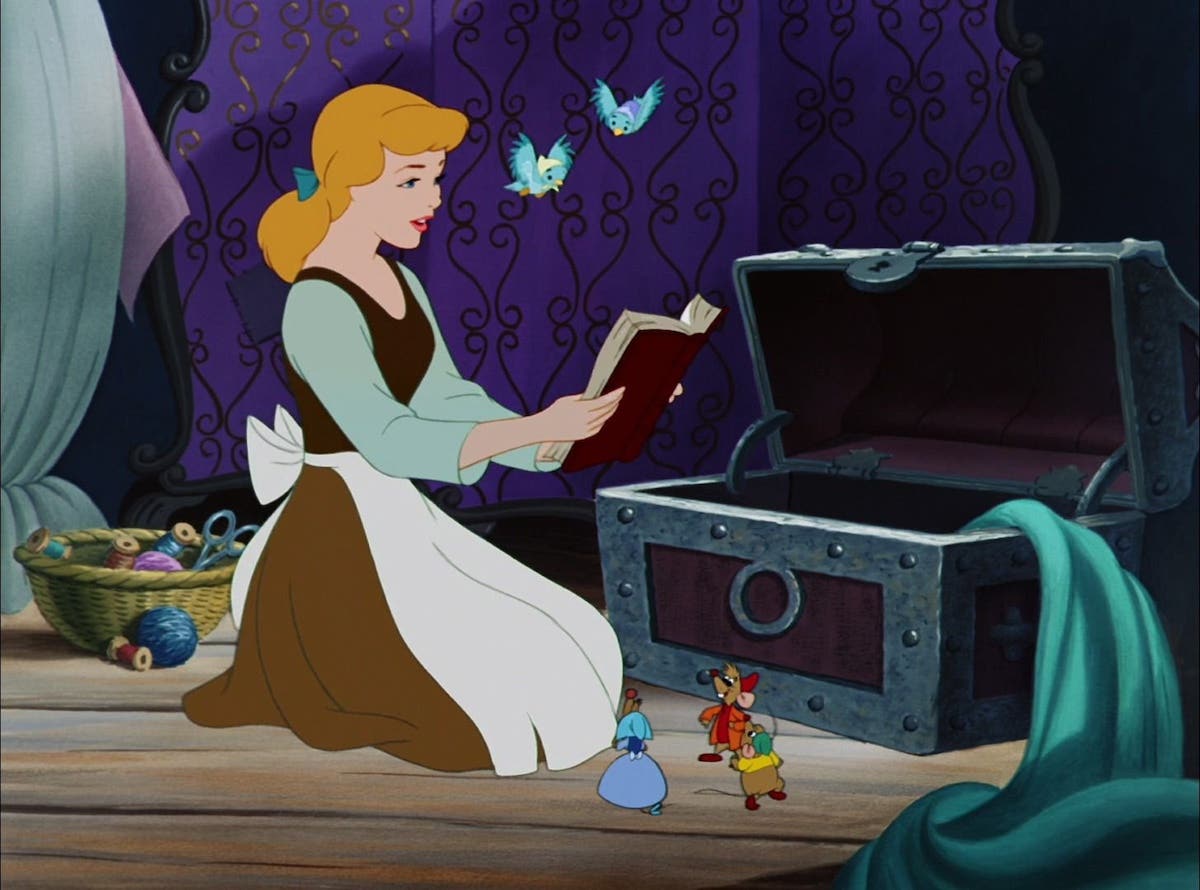IMPROVISING SCREENPLAYS: Writing Compelling but Unlikable Characters
Writer and theatrical improviser Brett Wean shares how improv shows us how to create compelling but unlikable characters.
In Improvising Screenplays, improvisational actor Brett Wean shares how the concepts of improvisation can be applied to the work — and play — of writing your script. Follow Brett on Twitter @brettwean.
The eternal quest to be liked is as old as Sally Field. Strike that. Not exactly what I meant. Try again. Likeability: the ne plus ultra of…no, too pretentious. I really just want people to “like” this article. And not just in a Facebook sense, but in a deeper, loin-swelling, elemental way that makes them want to read it all the way through to the end and say, “You know what? I want to go right back to the beginning, read this Scriptmag article again, right now, then invite it out to lunch and become besties.”
But is Likability really what drives audiences and readers all the way through a movie or a script?
There have been other articles that delve into this topic, so I’ll just add on my own specific perspective based on my experience performing improv: getting up on stage and intuitively getting and keeping the audience’s attention.
It’s not really “likability.”
Sure, the important thing for a movie (I think) is that we, as the audience, live vicariously through the main character. The protagonist often stands as an avatar for us: on a pretty basic, hardwired level, we can’t help but picture ourselves being in the same situation, facing the same obstacles, and taking the same actions as the main character on the screen.
Nine times out of ten, the way screenwriters help achieve that is to make their protagonist likable. Have us relate to them by -- hmm, what’s a good example -- saving a cat? Or doing something nice for someone who needs help. Or have us watch them being mistreated in some manner that makes us empathize with them. Making your character “likable” is the easiest, most obvious way to do the heavy lifting on this job. Nice things are nice.
And -- let’s not gloss over this -- there’s a good chance you’ll get a note someday saying that your main character should be more likable.
If you’re not actively setting out to make your protagonist unlikable, it’s probably a good note.
But what if the story you’re compelled to write necessarily involves an un-likable character? Is that off-limits?
Of course not. Just off the top of my head, there’s Scarface. Nightcrawler. Shattered Glass. A Christmas Carol. It would seem that the essential character element we’re talking about isn’t exactly likability, but something subtler that’s tangentially related to Likability in some way most of the time.
To my mind – and again, this is based on my personal experience watching people create never-before-seen characters on the stage, in a way that draws the audience in -- is that it’s not as important to be likable, as it is to be compelling.
So what do I mean by compelling?
What I mean is that you can’t take your eyes away for a second.
I’m going to toss out a theory: there are two competing impulses involved in our experience relating to main characters. One of them is the impulse to experience the story of the movie vicariously through the protagonist.
The other is to be a voyeur.
Imagine you have the worst boss in the world. He has whatever hairstyle you hate the most: a comb-over, a faux-hawk…take your pick. Go ahead. Let’s visualize this prick.
He micromanages constantly…except when you actually need his help, of course. He picks apart your personality, and makes you work long hours. He holds you to impossible standards, and then calls you in for a surprise negative performance evaluation. He pinches your ass on occasion.
You’ve never hated anyone so much in your life. You want to see him go to Hell for all eternity. Which is awkward, since you’re a nun.
He is, in short, unlikable.
Now imagine you’re watching him walk across the street, holding an important piece of paper. Maybe it’s just important to him. Maybe he’s had a longstanding crush on Debbie, the office temp, and today on his phone message sheet, she drew a little flower.
Maybe it’s the password to a secret bank vault, and he has a terrible memory, this piece of paper is the only place he has it written down.
Whatever.
But then:
A gust of wind. The middle of traffic. The sheet blows out of his hand.
Now answer me this:
Can you look away?
No. Your attention is going to be on every single little thing he does to get that sheet back. It’s not because you like him. Part of you wants to see him suffer.
But another part of your brain can’t help but envision yourself as him. That’s what we naturally do when we watch someone try to actively do something. We can’t help it. Your vicarious impulse, watching him attempt to do something, makes you want him to achieve his objective…or at least come really close, and then fail at the last second, with another gust of wind.
Either way, you have to know. Your brain hungers for a sense of closure.
Does he get the piece of paper back, or doesn’t he?
You can’t look away.
It’s compelling.
Take Shallow Glass. Hayden Christensen plays a young journalist who completely makes up a story, then tries to wriggle out of getting caught by his boss, played by Peter Sarsgaard.
I personally can’t look away from this movie, even though I hate the main character. I get caught up in it every time it’s on, no matter what scene is on the screen. And I know what you’re thinking right now: no, Peter Sarsgaard is not the main character. The momentum of the story is clearly generated by Hayden Christensen. (But -- make a mental note -- when writing a film with an antihero, it doesn’t hurt to have a heroic, likable character as a major part of your movie – it gives us sort of a safety valve at the end.)
The all-important task you have when writing an unlikable main character is to give him an unrelenting goal. This goal needs to be played out in specific, visceral little bursts throughout the movie, like Pacman having to collect little pieces of fruit to get to the next screen.
Is Pacman likable? Who gives a damn? We want to watch him rack up points and escape the ghosts.
It also doesn’t hurt to give your audience a clue as to how your protagonist became unlikable in the first place: something we have sympathy for, even though we don’t ultimately feel we can let him off the hook.
The two underlying mysteries with unlikable protagonists is the question of how they got that way, and whether or not they can, or will be, redeemed. (Groundhog Day, for example. Or Scrooged, as long as we're doing Bill Murray.)
So consider the simultaneous audiences impulses of vicariousness and voyeurism when writing an unlikable protagonist.
He doesn’t need to be likable…but he does need to be compelling.
Did you like this article? Did you really like it?
Then you’ll retweet it. None of this favoriting bullshit. (See? I wasn’t very likable there, but you were kind of with me.)
Have any questions about improv, and how it relates to writing for the screen? Feel free to post comments below or send questions via Twitter. They’ll be considered for a future installment.
- More articles by Brett Wean
- Meet the Reader: "Unlikeable" Characters
- FREE Character Development Download
Get help creating your characters with
How to Create a Badass Main Character In Any Genre Webinar by Pat Verducci
Brett Wean is a writer and actor who has studied improvisation at New York City’s acclaimed Upright Citizens Brigade and People’s Improv Theater (The PIT), where he has taught improv as well as performing on several house teams and studying both sketch and screenwriting. He has appeared on television in various commercials, including New York Lottery’s “Little Bit o’ Luck” campaign, and most recently on MTV's Weird Vibes, and in the feature film Breakup at a Wedding, produced by Zachary Quinto’s Before the Door Pictures. Follow Brett on Twitter @brettwean







